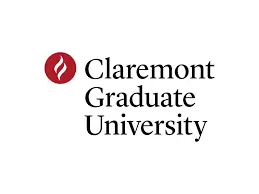Public health plays a vital role in improving community well-being, preventing disease, and shaping healthcare policies. The 1 year public health masters programs offers an accelerated pathway for professionals seeking to advance their careers in this essential field. Designed for flexibility, these programs allow students to balance their studies with work and personal commitments while gaining expertise in epidemiology, health policy, and community health. Graduates emerge prepared for leadership roles in healthcare organizations, government agencies, and nonprofit sectors. With a curriculum focused on real-world applications, these programs equip professionals with the skills to address today’s pressing health challenges. This guide explores 1 year public health masters programs, helping individuals choose the right program to meet their career goals.

Table Of Contents
What Are the 1 Year Public Health Masters Programs?
Here is a list of the 1 year public health masters programs:
- Environmental and Occupational Health Sciences
- Maternal and Child Health
- Health Informatics
- Public Health Administration
- Policy Analysis and Evaluation
- Epidemiology
- Emergency Preparedness and Response
- Health Communication and Advocacy
- Global and Rural Health
- Infectious Disease Management
- Community Health Education
- Sustainability and Public Health
- Public Health Practice
- Global Health
- Health Policy and Management
- Environmental Health
- Occupational Health and Safety
- Biostatistics
- Disaster Management
- Rural Health
Universities That Offer 1 Year Public Health Masters Programs
Many universities offer 1 year public health masters programs, providing a fast-tracked path to a public health degree. These programs prioritize efficiency while maintaining academic quality. Key factors such as accreditation, curriculum structure, faculty expertise, and affordability influence program selection. Institutions offering these programs ensure that students gain comprehensive public health knowledge within a condensed timeframe, preparing them for leadership roles. The team at OMC has carefully selected a list of universities that provide accredited 1 year public health masters programs, helping students advance their careers while balancing professional and personal commitments.
Here are some universities that offer the 1 year public health masters programs:
To Link to this page, please copy and paste this code into your website
<a href="https://www.onlinemasterscolleges.com/rankings/1-year-public-health-masters-programs/">1 Year Public Health Master's Programs
</a>
Code copied successfully!
Northeastern University
Northeastern University (NU) is a private research university in Boston, Massachusetts, founded in 1898. It has grown into one of the largest universities in Massachusetts, offering a diverse range of undergraduate and graduate programs. Known for its experiential learning model, Northeastern integrates classroom education with real-world experience through its renowned cooperative education (co-op) program. The university operates multiple satellite campuses across the U.S., Canada, and the U.K. Northeastern also offers a fast-track, 1 year public health masters program for professionals seeking advanced public health training in an accelerated format. Accredited by the New England Commission of Higher Education, Northeastern emphasizes innovation, global engagement, and interdisciplinary research in various fields, including healthcare and public health.
- Tuition – $27,728/ year approx
- Graduation Rate – 91%
Goodwin University

Goodwin University is a private institution in East Hartford, Connecticut, founded in 1962 as the Data Institute Business School. It transitioned to non-profit status in 2004 and became a university in 2020. The university is known for career-focused programs and a commitment to workforce development. It offers degrees through the School of Nursing and Health Professions, Business Technology and Advanced Manufacturing, and Applied Liberal Arts and Social Sciences. Goodwin University provides a fast-track, 1 year public health masters program for professionals seeking accelerated public health education. Accredited by the New England Commission of Higher Education (NECHE), Goodwin emphasizes innovation, hands-on learning, and community engagement to prepare students for leadership roles in various fields.
- Tuition – $13,320/ year approx
- Graduation Rate – 58%
University of Southern California
The University of Southern California (USC) is a private research institution in Los Angeles, founded in 1880. It is one of the oldest private universities in California and is known for its diverse academic offerings across 22 schools, including the Keck School of Medicine. USC provides a fast-track, 1 year public health masters program for professionals seeking advanced public health education. Accredited by the Western Association of Schools and Colleges (WASC), USC emphasizes interdisciplinary learning, research, and global engagement to prepare students for leadership roles in healthcare and public health sectors.
- Tuition – $66,640/ year approx
- Graduation Rate – 97%
Tufts University
Tufts University, founded in 1852, is a private institution in Medford and Somerville, Massachusetts, with campuses in Boston, Grafton, and Talloires, France. It offers over 90 undergraduate and 160 graduate programs, including a fast-track 1 year public health masters program. The university is home to the Fletcher School of Law and Diplomacy and collaborates with global institutions. Tufts emphasizes interdisciplinary research, professional education, and international engagement across its ten schools.
- Tuition – $48,324/ year approx
- Graduation Rate – 98%
Drexel University
Drexel University, founded in 1891 in Philadelphia, is a private institution emphasizing experiential learning. It offers over 70 undergraduate and 100 graduate programs, including a fast-track 1 year public health masters program. Drexel’s cooperative education program integrates academic study with professional experience. The university has expanded through acquisitions, including the Drexel College of Medicine and Salus University. It remains dedicated to innovation, research, and career-focused education.
- Tuition – $36,234/ year approx
- Graduation Rate – 77%
Claremont Graduate University

Claremont Graduate University (CGU), founded in 1925, is a private, graduate-only institution within the Claremont Colleges consortium in California. It offers master’s and doctoral programs across seven schools, emphasizing interdisciplinary research and collaboration. CGU introduced its first online master’s programs in 2018, including a fast-track 1 year public health masters program. The university is known for its transdisciplinary approach, fostering innovation across public health, management, social sciences, and technology.
- Tuition – $36,360/ year approx
- Graduation Rate – Not Mentioned
University of Bridgeport
The University of Bridgeport (UB), a private institution in Connecticut, was founded in 1927 as the state’s first junior college and became a four-year university in 1947. Acquired by Goodwin University in 2021, UB maintains its name and academic identity. It offers over 60 programs, including a fast-track 1 year public health masters program. UB is known for its diverse health sciences programs, including Connecticut’s only Chinese medicine program and a leading chiropractic school.
- Tuition – $19,096/ year approx
- Graduation Rate – 48%
John Hopkins University
John Hopkins University, a private research institution in Baltimore, Maryland, was founded in 1876 as the first U.S. university based on the European research model. It has graduate campuses in Italy, China, and Washington, D.C. Named after philanthropist Johns Hopkins, the university emphasizes research and interdisciplinary education. It offers diverse academic programs, including a fast-track 1 year public health masters program. Johns Hopkins continues to shape higher education through its innovative teaching and research initiatives.
- Tuition – $62,840/ year approx
- Graduation Rate – 95%
Columbia University Mailman School of Public Health
Columbia University Mailman School of Public Health, established in 1922, is among the oldest public health schools in the U.S. Located at the Columbia University Irving Medical Center in Manhattan, it offers MPH, MHA, MS, PhD, and DrPH degrees. The school is known for pioneering research and global health initiatives. It administers the prestigious Calderone Prize and provides an accelerated 1 year public health masters program, equipping professionals to address pressing public health challenges worldwide.
- Tuition – $53,576/ year approx
- Graduation Rate – 95%
George Washington University
The George Washington University, founded in 1821, is a private federally chartered university in Washington, D.C. Originally named Columbian College, it was established through a congressional charter and inspired by George Washington’s vision for a national university. The university offers degrees in over 70 disciplines and is a major political and global affairs hub. It provides an accelerated 1 year public health masters program, equipping professionals to address public health challenges in diverse settings.
- Tuition – $27,000/ year approx
- Graduation Rate – 84%
What Exactly Are 1 Year Public Health Masters Programs?
- Accelerated Pathway – These programs offer a fast-track option for earning a Public Health Masters in just one year, ideal for those eager to advance quickly in their careers.
- Flexible Online Format – Designed for working professionals, online learning allows students to complete coursework on their schedule without relocating or pausing their careers.
- Diverse Specializations – Programs offer concentrations in epidemiology, global health, health policy, and more, ensuring students develop expertise tailored to their career goals.
- Real-World Application – Many programs integrate practical experiences, case studies, or capstone projects to apply public health theories to real-world challenges.
- Expanded Career Prospects – Graduates are well-prepared for leadership roles in healthcare organizations, government agencies, and non-profits, contributing to meaningful public health initiatives.
Advantages and Disadvantages of 1 Year Public Health Masters Programs
Advantages of 1 Year Public Health Masters Programs:
- Faster Degree Completion – Graduating in one year allows quicker entry into the workforce, helping students advance their careers or transition into public health roles without prolonged academic commitments.
- Cost Savings – Shorter duration reduces tuition and living expenses compared to traditional two-year programs, making it a more affordable option for students seeking an efficient route to a master’s degree.
- Intensive Learning Experience – Condensed coursework ensures immersive education, providing students with a rigorous and focused curriculum that strengthens public health knowledge and practical skills within a short time frame.
- Career Acceleration – Professionals seeking career advancement or specialization can quickly gain credentials, making them more competitive for leadership roles, policy development positions, or specialized health fields.
- Flexible Online and Hybrid Options – Many 1-year programs offer online or hybrid formats, allowing students to balance education with work or personal commitments while still completing their degree efficiently.
Disadvantages of 1 year public health masters programs:
- Heavy Workload – The accelerated format requires a fast-paced learning environment with intensive coursework, making it challenging for students who need more time to absorb complex public health concepts.
- Limited Internship Opportunities – Some programs may have fewer opportunities for hands-on experience, making it harder for students to gain practical field exposure compared to traditional two-year programs.
- Higher Academic Pressure – The condensed timeline requires students to manage multiple courses simultaneously, increasing stress levels and requiring strong time management skills to keep up with demanding coursework and deadlines.
- Less Time for Research – Students interested in research-focused careers may have fewer opportunities to engage in extensive research projects, limiting their ability to publish papers or gain in-depth academic experience.
- Reduced Networking Time – With less time to build connections with faculty, peers, and industry professionals, students may miss out on valuable networking opportunities that could benefit their future careers.
Why Opt for 1 Year Public Health Masters Programs?
Choosing a 1 year public health masters program provides a streamlined route to acquiring advanced public health expertise while managing work and personal responsibilities. This intensive format enables students to build essential skills and credentials quickly, supporting career growth or shifts into new public health roles. The accelerated structure ensures a comprehensive education without the extended timeline of conventional programs. By combining flexibility with rigorous coursework, these programs equip professionals to immediately impact areas such as epidemiology, policy, and community health.
Reasons to opt for 1 year public health masters programs:
- Accelerated Career Growth – Earn a Public Health Masters in just one year, allowing quicker career advancement in healthcare, policy, or research.
- Flexible Learning – Study from anywhere with an online format, making it easier to balance work, education, and personal commitments.
- Cost and Time Efficiency – A shorter program reduces tuition costs and living expenses compared to traditional two-year programs.
- Diverse Networking Opportunities – Engage with professionals and peers worldwide, gaining global insights into public health challenges.
- High-Demand Skill Development – Gain essential public health expertise quickly to meet growing industry needs.
The Goal of 1 Year Public Health Masters Programs
The goal of 1 year public health masters programs is to equip students with advanced public health knowledge and practical skills in an accelerated timeframe. These programs prepare professionals to address public health challenges, influence policy, and implement effective health interventions. By integrating core disciplines such as epidemiology, biostatistics, and health policy, graduates are ready to take on leadership roles in healthcare organizations, government agencies, and nonprofits. The intensive curriculum ensures students gain expertise efficiently while balancing personal and professional commitments.
Accreditation for 1 Year Public Health Masters Programs
Accreditation ensures that 1 year public health masters programs meet high academic and professional standards. Institutional accreditation, granted by regional accrediting bodies, confirms the university’s overall quality. Programmatic accreditation, such as from the Council on Education for Public Health (CEPH), specifically evaluates public health curricula, faculty, and student outcomes. CEPH accreditation is particularly important, as it signifies that a program aligns with industry standards and prepares graduates for leadership roles. Employers and certification boards often require degrees from accredited programs, making accreditation a key factor when selecting 1 year public health masters programs.
Universities are accredited nationally or by one of six regional accrediting agencies:
- New England Commission of Higher Education (NECHE)
- Middle States Commission on Higher Education (MSCHE)
- Higher Learning Commission (HLC)
- Southern Association of Colleges and Schools Commission on Colleges (SACSCOC)
- Northwest Commission on Colleges and Universities (NWCCU)
- Western Association of Schools and Colleges (WASC) Senior College and University Commission (WSCUC)
To understand more about accreditation, read the Guide to College Accreditation.
Additional Resources for Students Looking for 1 Year Public Health Masters Programs
Exploring 1 year public health masters programs requires thorough research to find the best fit. Reviewing official university websites, connecting with alumni, and engaging in online discussions can offer insights into program structure and career pathways. Many schools provide virtual open houses, admissions consultations, and webinars to address key concerns. Evaluating financial aid options, accreditation status, and faculty expertise further refines the selection process. Utilizing these resources ensures a well-informed decision, aligning educational goals with professional aspirations in the public health field.
Here are some helpful resources for 1 year public health masters programs students:
American Public Health Association (APHA)
The American Public Health Association (APHA) advocates for health equity, evidence-based policies, and community wellness. With a 150-year legacy, APHA influences public health policy, publishes the American Journal of Public Health, and hosts the Annual Meeting and Expo. It leads awareness campaigns like National Public Health Week, fostering collaboration among professionals to improve health outcomes nationwide.
Association of Schools and Programs of Public Health (ASPPH)
The Association of Schools and Programs of Public Health (ASPPH) represents over 150 accredited institutions, advocating for excellence in public health education, research, and policy. ASPPH fosters collaboration, innovation, and social justice, preparing future public health leaders. Advocacy, professional development, and research support strengthen public health institutions and promote equitable health.
Society for Public Health Education (SOPHE)
The Society for Public Health Education (SOPHE) is a nonprofit professional association dedicated to advancing health education and promotion. SOPHE fosters public health awareness, advocacy, and skill development by representing diverse professionals across various sectors. It promotes health equity, community engagement, and evidence-based strategies to address chronic disease, injury prevention, and public health emergencies.
National Environmental Health Association (NEHA)
The National Environmental Health Association (NEHA) supports over 7,000 environmental health professionals worldwide. With an 87-year legacy, NEHA advances environmental health science through education, credentialing, advocacy, and networking. It upholds high professional standards, publishes a peer-reviewed journal, and fosters career growth. NEHA aims to empower professionals, protect communities, and promote healthy environments.
National Association of County and City Health Officials (NACCHO)
The National Association of County and City Health Officials (NACCHO) represents over 3,300 local health departments across the U.S. Founded in 1965, NACCHO advocates for public health, provides training, and promotes policy change. Guided by core values like equity and leadership, it strengthens local health departments through education, networking, and preparedness initiatives.
FAQs About 1-Year Public Health Masters Programs
What is an 1 year public health masters program?
A 1 year public health masters program is an accelerated graduate degree focused on public health practice, policy, and research. It covers epidemiology, biostatistics, health policy, and environmental health. Designed for professionals or recent graduates, it prepares students for leadership roles in healthcare, government, and nonprofit sectors.


